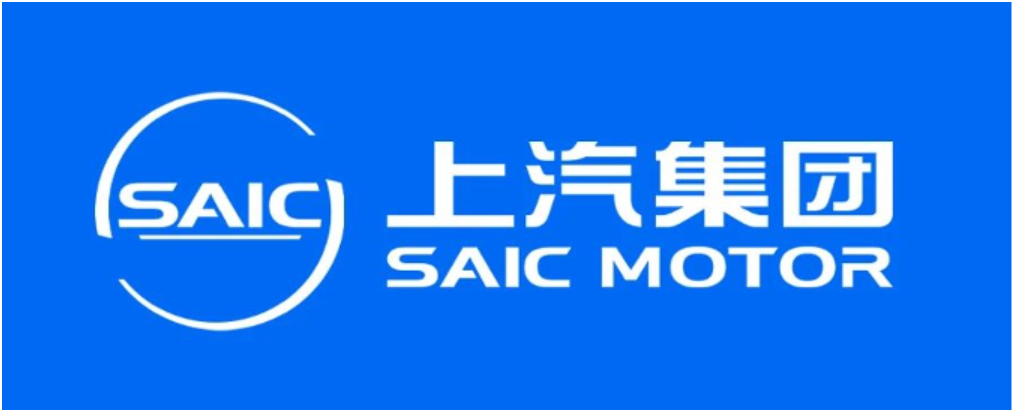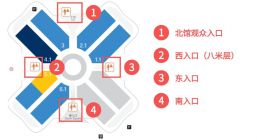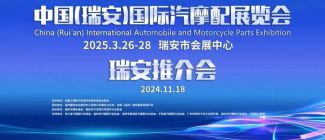On July 5, local time, according to Bloomberg News, due to the shortage of chips, SAIC Motor reduced its wholesale car sales in the first half of the year by 500,000.
Investors are generally concerned about when the company’s chip shortage will be alleviated. In this regard, Chen Hong, Chairman of SAIC Group, stated at the recent SAIC Group’s 2020 Annual Shareholders’ Meeting that in June this year, all major vehicle manufacturers across the country are facing supply shortages, which are expected to be alleviated in late July. Third, Basically, it will return to normal in the fourth quarter.
The annual target remains unchanged
As a giant company with an annual output of 6 million cars and a number of independent and joint venture brands, SAIC Motor has been significantly affected by the chip crisis that has swept the global automotive industry.
The shortage of automotive chip supply began at the end of last year. The spread of the epidemic disrupted the normal pace of automobile production, and the soaring demand in the consumer electronics market squeezed the production capacity of automobile chips, resulting in an imbalance in the normal supply and demand order of the automobile chip market. At the beginning of this year, a fire broke out in a chip factory in Japan and a snow disaster in Texas, a major semiconductor town in the United States, further aggravated the shortage of automotive chips. In this situation, auto companies are scrambling to order, scan and stock up to ensure the supply of chips, and minimize the negative impact of the industry as much as possible.
In addition, the China Automobile Association also pointed out that up to now, China's auto chip self-sufficiency rate is less than 5%. Among them, MCU control chips are particularly in short supply. Due to unclear information such as the chip supply gap and the recovery period, chip distributors have begun to stock up and ask for prices in the market.
The semiconductor supply-demand imbalance has dragged down SAIC's production and sales plans, and its joint venture brands are the first to bear the brunt. According to the data previously released by the Passenger Association, in May 2021, SAIC Volkswagen's wholesale sales fell 16% year-on-year, and SAIC-GM's wholesale sales fell sharply 41% year-on-year.
In April of this year, SAIC Volkswagen responded to the news of the suspension of production of a number of main models, saying that the phased suspension was caused by the shortage of global semiconductor chip supply. In the future, the company will optimize the production scheduling plan according to market demand and give priority to ensuring that market demand is large. The production capacity of products to make up for the gap.
In fact, in addition to SAIC and the Chinese market, automakers including Volkswagen, BMW, Nissan, and Hyundai have warned that the tight inventory due to chip shortages will adversely affect sales this summer. Luxury car brand Jaguar Land Rover also recently stated that the company's second-quarter deliveries will be 50% lower than expected. BMW is even more pessimistic, saying that there is no sign of any alleviation of the chip shortage, and it is expected that the supply will continue to be tight in the second half of the year.
The American consulting firm AlixPartners predicts that the shortage of automotive chips may cause the automotive industry to reduce annual production by 3.9 million vehicles and reduce sales by 110 billion U.S. dollars, and force automakers to completely change the procurement methods of key components such as chips.
The China Automobile Association predicts that the shortage of automotive chips will reach its peak in the second quarter of this year. It is optimistic that it will begin to ease in the second half of the year. The impact is expected to be smoothed out throughout the year, and the supply is expected to return to normal by mid-2022.
Although there was a significant decline in wholesale sales in the first half of the year, and the recovery of chip supply also has greater uncertainty, the successful renewal of SAIC Chairman Chen Hong said that this year's chip shortage will not affect the annual sales target of 6.8 million vehicles.
In addition, SAIC Group President Wang Xiaoqiu added that the lack of chip supply does have a great impact on the company’s wholesale sales, but from the perspective of terminal retail sales, the company’s overall performance has exceeded that of the market (from January to May in 2021, the group’s retail sales increased year-on-year 40.8%, 5 percentage points higher than the overall auto market, and 600,000 more than wholesale sales). With the improvement of chip supply in the third quarter, the company will replenish goods. Therefore, the shortage of chips for the whole year will not have a fundamental impact on sales targets.

Step up the chip layout
In addition to optimizing production schedules and ensuring the supply of chips, SAIC is also learning from the experience and lessons of the chip crisis. On the one hand, it adjusts its procurement model and on the other hand takes precautions and begins to deploy high-end chips necessary for smart cars.
At the 2021 annual shareholders meeting of SAIC Group held earlier, Chen Hong said that the shortage of chips has changed the relationship between OEMs and chip makers. It turned out that the OEM did not have direct contact with the chip factory. The Tier 1 supplier signed a contract with the chip factory. After the crisis broke out, SAIC also began to establish direct contact with the chip factory. With the development of intelligent vehicles, the group has also accelerated The layout of the chip.
In February 2021, SAIC Group announced that it has reached a strategic cooperation with Horizon, an edge artificial intelligence chip company, to jointly explore the cutting-edge technology of automobile intelligence and develop intelligent and connected automobile products. In the future, the two parties intend to continue to deepen cooperation with intelligent domain controllers and autonomous driving systems as the entry point, and establish a joint team around the future high-level autonomous driving chips of the horizon to create the next generation of intelligent driving domain controllers and standard Tesla FSD System solutions.
With the investment in chip research and development, SAIC has also accelerated the construction of software-defined automotive technology capabilities. It has established five centers for software, big data, artificial intelligence, cloud computing, and network security, and developed "centralized and domain-controlled" vehicle electronics. Architecture, SOA software platform of "open service-oriented architecture", vehicle data platform with data closed-loop capability, and network security system, to create a full-stack technical solution integrating "cloud and pipe end".
While SAIC is stepping up its layout, other independent auto companies have successively announced plans for independent research and development of chips this year to master this "stuck neck" key technology.
In March, Li Shufu, chairman of Geely Holding Group, revealed that Geely Auto had deployed its “China Chip” strategy as early as 2019. While strategically purchasing and preparing inventory in advance, it is also rapidly introducing domestic chips and independently developed and designed chips. The self-developed central control chip will be assembled on the car in 2023.
In June, BYD, which has self-developed MCU and IGBT chip capabilities, decided to spin off its subsidiary BYD Semiconductor Co., Ltd. to go public on the GEM, with the aim of further accelerating the innovative development of semiconductor business and improving financing capabilities.
In July, Zhixin Semiconductor Co., Ltd., a joint venture between Dongfeng Company and China CRRC's two major central enterprises, realized mass production of automotive-grade IGBT module products.
In addition, new car-building forces such as Weilai and Xiaopeng have also begun to plan self-developed autonomous driving computing chips, hoping to further expand their leading edge in the field of intelligence.
In the increasingly fierce domestic automobile chip competition, SAIC's R&D depth and cooperation breadth have not yet opened up to competitors. An automotive industry analyst told Caijing.com that the future competition of smart cars is not only a competition of software and data, but also a hardware carrier-high computing power AI chips to provide critical computing capabilities for software operation and data training. support. Therefore, if SAIC wants to hit the first echelon of smart cars, while practicing the development concept of "data determines experience, software defines cars", it needs strong chip design and R&D capabilities to complement this key link.
AMS2024 Exhibition Guide | Comprehensive Exhibition Guide, Don't Miss the Exciting Events Online and Offline
Notice on Holding the Rui'an Promotion Conference for the 2025 China (Rui'an) International Automobile and Motorcycle Parts Exhibition
On September 5th, we invite you to join us at the Wenzhou Auto Parts Exhibition on a journey to trace the origin of the Auto Parts City, as per the invitation from the purchaser!
Hot Booking | AAPEX 2024- Professional Exhibition Channel for Entering the North American Auto Parts Market
The wind is just right, Qianchuan Hui! Looking forward to working with you at the 2024 Wenzhou Auto Parts Exhibition and composing a new chapter!
Live up to Shaohua | Wenzhou Auto Parts Exhibition, these wonderful moments are worth remembering!
Free support line!
Email Support!
Working Days/Hours!





